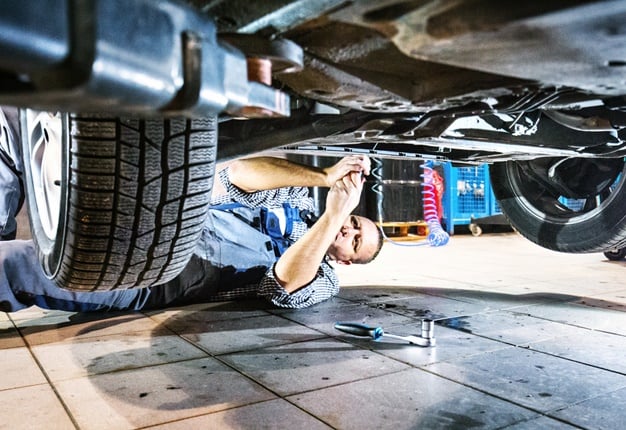Johannesburg - Earlier in September, the Department of Economic Development published a draft code of conduct for competition in the South African automotive industry for public comment by no later than November 3, 2017.
Spearheaded by the Competition Commission of South Africa, this code of conduct is to be a voluntary one and seeks to “address anti-competitive behaviour within this industry whilst at the same time promoting the industry's transformation to foster inclusive growth”.
'Significant boon for consumers'
Justice Project SA national chairman, Howard Dembovsky, says: "On the face of things, this voluntary code, if bought into by vehicle manufacturers could represent a significant boon for consumers insofar as it should theoretically reduce the total cost of ownership of motor vehicles by introducing healthy competition between after-sales service providers during the vehicle’s warranty period and beyond.
"Currently, when consumers purchase new vehicles, they do so through what are effectively large dealership networks and are compelled to take their vehicles to such dealerships for services and maintenance during the warranty, extended warranty and service/maintenance plan period. They are also compelled to purchase “original parts” and have repairs conducted by “approved service-providers” in order to avoid voiding the vehicle’s warranty.
"Although it doesn’t say so directly, this code should be viewed by the automotive industry and automotive insurance industry as a precursor to outright regulation. Effectively, the Competition Commission and Department of Economic Development is giving the automotive industry an opportunity to “play nice” by voluntarily opting into the code of conduct. If that fails, statutory regulation is almost certain to follow."
In a nutshell, the code purportedly seeks to:
1 Make it possible for small and historically disadvantaged independent service providers to undertake service and maintenance work whilst a vehicle is in-warranty. In other words, for independent service providers to undertake in-warranty mechanical (maintenance and service) work and in so doing, provide consumers with a choice as to where they take their vehicles for such maintenance and service;
2 Extend the opportunity for more small, historically disadvantaged independents to undertake in-warranty auto-body repairs and make it possible for more service providers to participate in the OEM networks, particularly firms owned and operated by historically disadvantaged persons;
3 Make it possible for more historically disadvantaged individuals to own OEM dealerships by catering for an increase in the number of dealerships owned by historically disadvantaged persons;
4 Cater for the use of equal matching spare parts, in addition to OEM and identical parts, in the repair of motor vehicles by introducing an increased choice of service providers for consumers for the service, maintenance and repairs of their vehicles;
5 Remove OEM restrictions in the sale and distribution of parts by retailers, whether they are OEM-approved or independent, by increased product choice and competitive prices for consumers for services and spare parts;
6 Introduce more price and product options for consumers in the sale of parts and greater consumer awareness of the costs in the sale of a vehicle, including the costs of maintenance and service plans.; and
7 Cater for consumer education & awareness of costs entailed in the purchase of a motor vehicle.
What do you think of the proposed Code of Conduct for the auto industry? Email us
Image: iStock
Dembovsky continues: "Whilst the code does not seek to dispose of large dealerships and “approved service-providers” entirely, it does seek to extend these approvals to smaller entities and independents, as well as to loosen the qualifying criteria for acquiring brand dealerships and dispose of sole dealerships within a defined geographical area.
"Insurers who sell extended service and/or maintenance plans and extended warranties for both, new and used vehicles will also be bound by this code, if they voluntarily opt into it, and will no longer be able to insist that vehicle owners use a specific appointed service-provider, failing which they will withhold payment."
READ: 5 ways the new SA car industry code could affect you
Another significant part of this code comes in the form of “equal matching spares” manufactured and distributed by manufacturers other than the original equipment manufacturers (OEMs).
"Such parts would have to meet SABS/SANS specifications, but would not have the effect of voiding warrantees as is the case at the moment. This too represents good news for motorists insofar as such parts are often available at a fraction price of the original parts supplied by OEMs", says Dembovsky.
"The code of conduct, as amended by the submissions which are made and accepted, will take effect twelve months after signing by the participants and will prevail until such time as it is replaced by an updated code, or indeed, statutory regulation."




 Publications
Publications
 Partners
Partners












